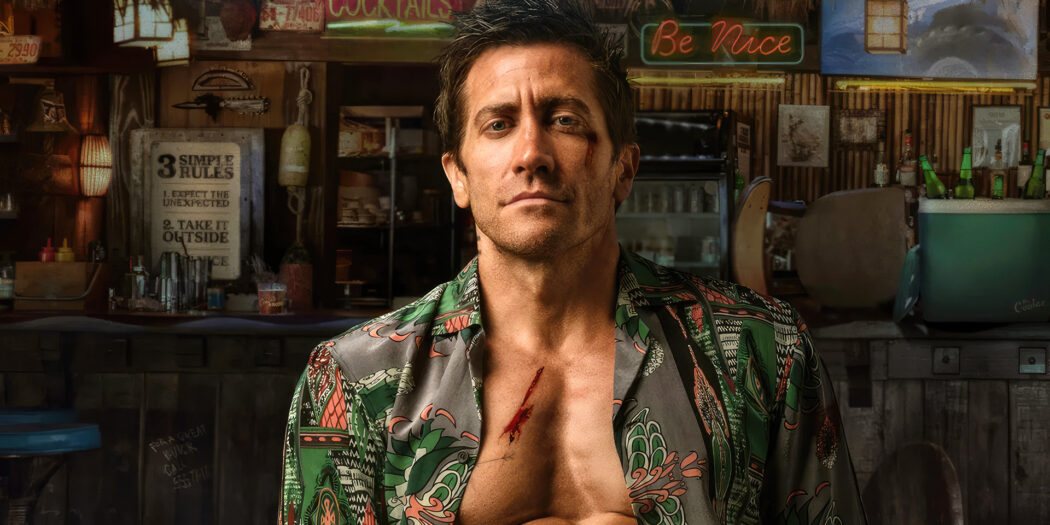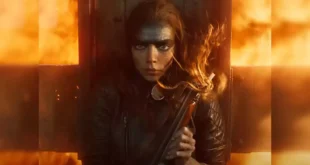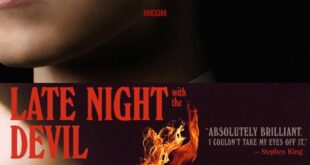Road House (1989) is a film that knows exactly what it is—a blend of action, romance, and drama, all served with a healthy dose of Patrick Swayze’s charm. Its straightforward narrative, memorable characters, and commitment to its genre make it a beloved classic. While it may not be a masterpiece of cinema, it’s undeniably entertaining and has earned its place in the pantheon of cult classic films. The 2024 “reimagining” of Road House has about half the original’s charm and is far less memorable.
Props to Jake Gyllenhaal for having a good screen presence, but he doesn’t have the charm of Swayze. I also appreciated the attempt to give Dalton more of a backstory here, but there’s not enough narrative juice to keep things interesting. Not to mention, the overreliance on CGI in the fight scenes takes away any visceral impact.
Elwood Dalton, a former UFC middleweight with a troubled past, survives by scamming underground circuit fighters. Offered a fresh start by Frankie, the owner of a tumultuous roadhouse in the Florida Keys, Dalton’s life takes a pivotal turn following a personal crisis. He accepts the role of head bouncer at “The Road House” and forms a bond with Charlie, a local teen, and her father, Stephen, who introduce him to the community’s spirit through a symbolic book.
Dalton embraces this new chapter, making a home on a boat. He meets a doctor named Ellie, who is also the daughter of the corrupt sheriff, “Big Dick.” Corrupt police aren’t Dalton’s only problem. He must fight off the thugs of a local mafia boss, Ben Brandt, who wants to buy The Road House to turn it into a resort. Brandt’s father hires a thug named Knox as Dalton’s main adversary. Can Dalton fend off these forces with demons still haunting his past?
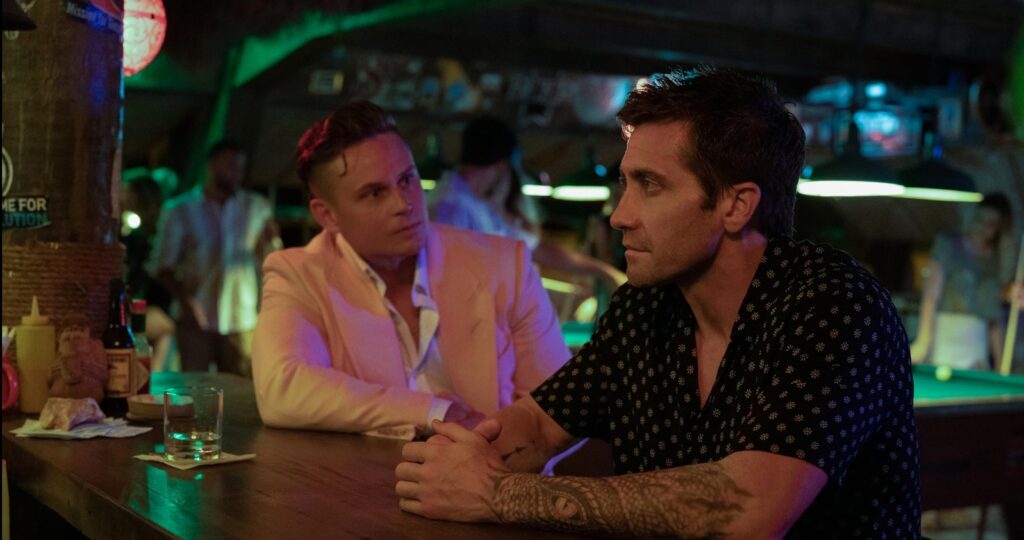
Doug Liman has made some good films in the past like Swingers, Go, The Bourne Identity, and Edge of Tomorrow. Unfortunately, Road House can’t sustain the same fireball energy those films had. It attempts to mix realism with cartoonish insanity and a convoluted plot with very mixed results. Conor McGregor’s performance as Knox does bring a certain spark to the movie, but at the same time he’s mostly just playing Conor McGregor. Everyone else is merely ok.
As I mentioned earlier, Gyllenhaal has all the swagger of an action star but none of the charisma Swayze possessed. The relationship with Ellie (Daniela Melchior) aims for complexity but lacks the passion found in the original, reflecting a more nuanced, if not fully realized, approach to character relationships.
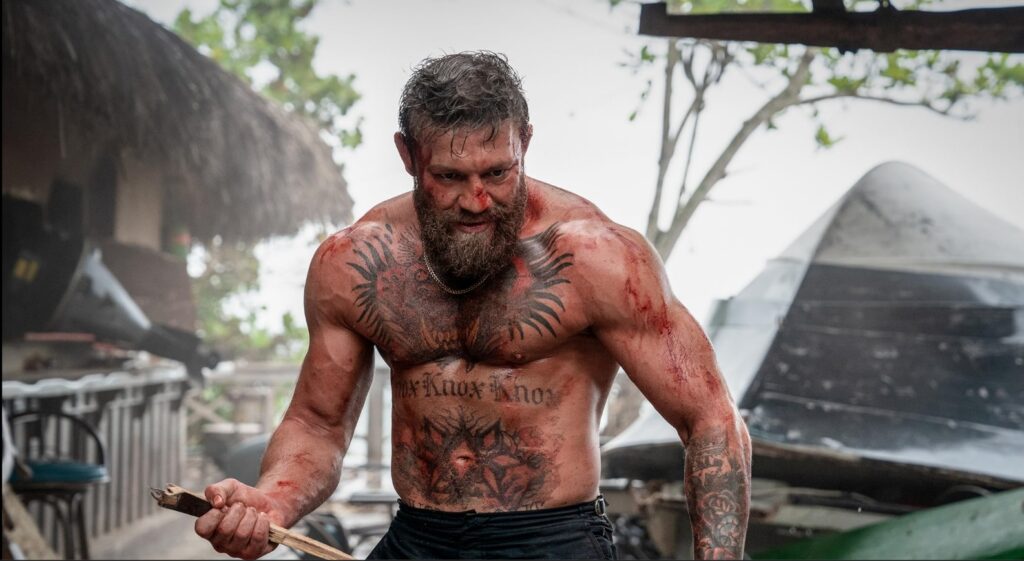
The transformation of Dalton’s character in the 2024 version to someone displaying near-psychopathic determination and engaging in extreme violence, such as feeding a man to a crocodile, represents a departure from the original’s more nuanced portrayal. This change could reflect broader shifts in cinematic trends and audience expectations for action movies, favoring more explicit demonstrations of strength and aggression over the introspective hero archetype.
This shift might also be interpreted as an attempt to modernize the character for contemporary audiences, offering a more straightforward and less morally ambiguous protagonist. However, it could potentially alienate fans of the original film who appreciated the depth and complexity Swayze brought to the role. The decision to take Dalton in this direction raises questions about how action heroes are portrayed in modern cinema and what these portrayals say about contemporary values and attitudes towards violence and heroism.
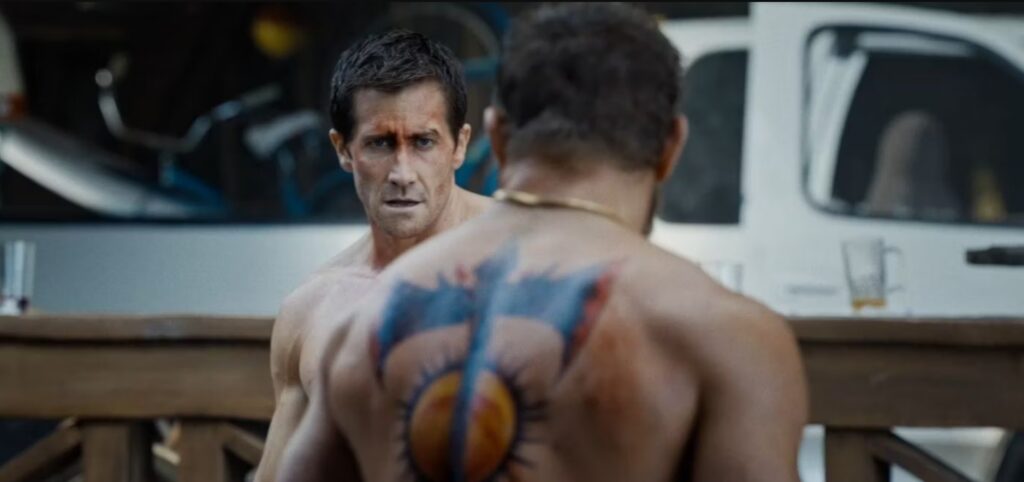
In the final analysis, the 2024 iteration of Road House presents a mixed bag of action-packed sequences, technological advancements, and a modernized narrative that attempts to resonate with contemporary audiences. Despite the commendable efforts of Jake Gyllenhaal and the cast to breathe life into their characters, along with the visually engaging action choreography, the film struggles under the weight of its CGI reliance and a shift in character depth that diverts significantly from the original’s more nuanced portrayal. It serves as a reminder of the challenges inherent in reimagining beloved films for a new generation, where the essence of what made the original special can sometimes be lost in translation.
** out of ****
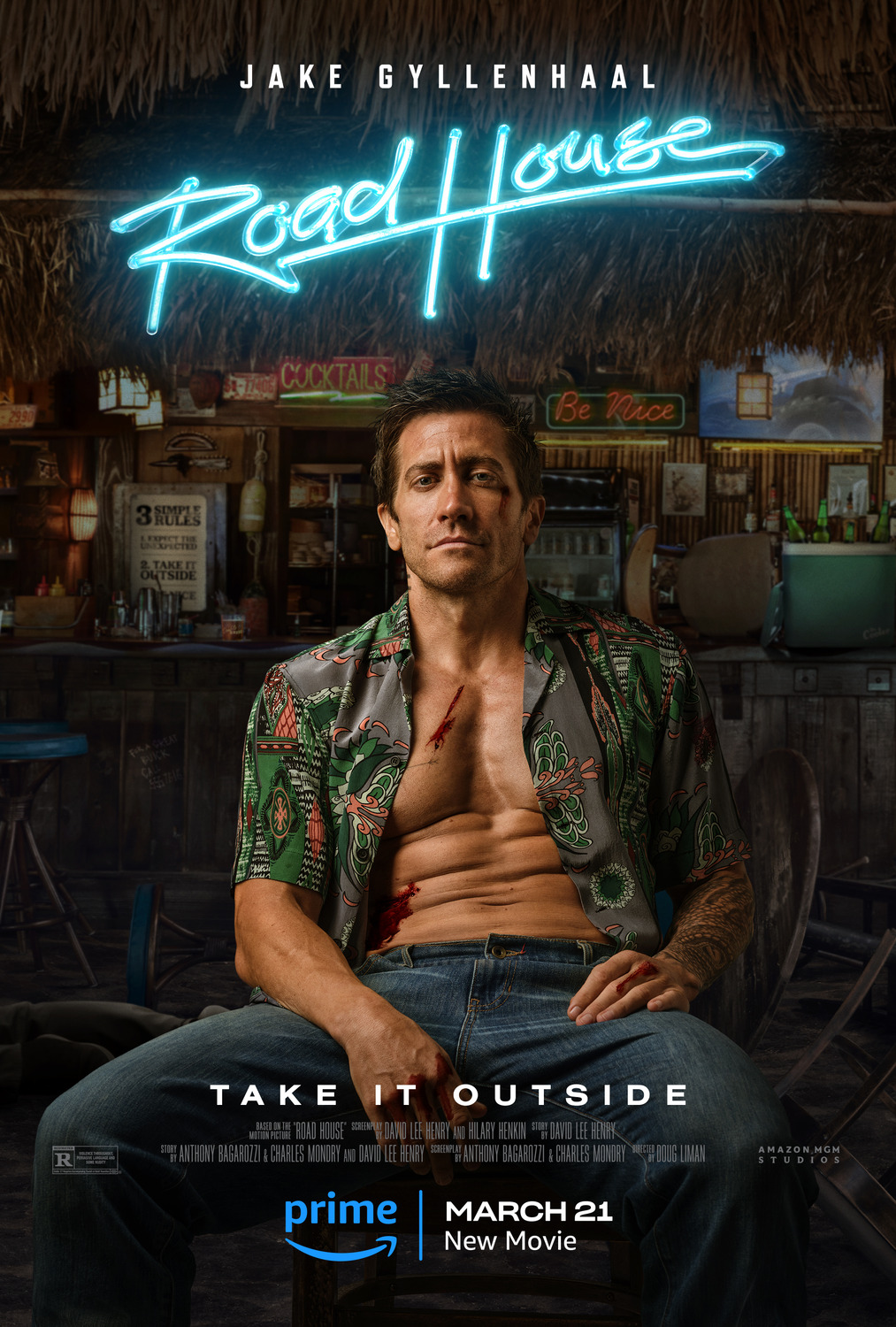
 Movie Finatics The Place for Movie Lovers
Movie Finatics The Place for Movie Lovers
